In third grade, Missouri Assessment Program (MAP) testing was the best time of the year; teachers passed out Cheez-Its and Smarties periodically, there was no homework and more importantly, I didn’t have to learn history that week.
This year, when I took the practice ACT April 2, I felt no such joy. Many of my peers shared these sentiments. Though it was merely practice, I only had an appetite for stress in the morning, and I felt inadequately prepared walking into the gym. When it comes to the ACT, time is always moving too fast for me.
From a young age, we are made aware that exceptional scores in school will allow us to get into the best colleges, which will allow us to have, apparently, great lives. We are told that as school gets increasingly competitive, we must work harder and harder so that all of our dreams can come true. In every learning environment, the intensity of learning depends on the overall student population. Our school is filled with diligent, intelligent students and therefore the competition is that much more intense. When students work harder, the general standards increase, and the cycle repeats. Unfortunately, as our standards increase linearly, colleges’ standards increase exponentially.
Along with the standard that we must be phenomenal learners (to even be considered as serious applicants), elite colleges search for unique individuals: a vague and less formulaic concept. Even though a 36 is still rare, scoring a 34 or above is becoming more of an expectation rather than an accomplishment. On top of this, the expectation is to do what hasn’t been done, to stand out amongst a pool of kids who are equally trying to “stand out.” The score is important, yet, colleges claim, they care about the student outside of test scores as well. This elusive idea of what colleges actually want leads kids to over-exert themselves for four years and still come out of high school with letters of rejection.
Even for students who are the one-tenth of 1% who earn a 36, admission to the top universities is still not guaranteed. Out of the current seniors at our school, five earned perfect scores and others earned near-perfect scores. One of these seniors, with a 4.3 GPA, perfect ACT score and as a National Merit Finalist was rejected from Vanderbilt University. Another student with a similar resume got rejected from his dream school, Massachusetts Institute of Technology (MIT).
ACT claims the test is meant to “motivate students to perform to their best ability;” however, more than motivation, low scores and college rejections result in devastation. We are also seeing an increase in test anxiety among students: four hours in a folding chair in the gym have the power to make or break all of your future plans—this is what school culture and whispers of college admissions tell us. At what speed one can answer multiple choice questions is certainly a marker of intelligence for some, but it is not the universal standard. Teachers tell us they value quality over quantity because demonstrating learning comes in a variety of forms– standardized tests are a harsh imposition that suppresses our individuality, and we must conform. As an end result, the score earned easily becomes a numerical value that students define themselves by. Obviously, it is not any students inclination to value exams over their own well-being; however, when it becomes a defining factor of your academic career they are left without a choice.
And that is why it’s unsurprising that students who are financially capable invest thousands of dollars into preparation books, tutors and to repeat the exam until they get a score they are satisfied with. After all, supposedly, a good score opens the door to prestigious college acceptances, which leads to job opportunities and having a successful life. This arises as an issue with lower-income students as they get left in the dust without the same ability to afford tutors and books.
At the end of the day, there are still thousands of kids with amazing scores competing for a very limited number of spots in the Ivy League colleges. They are being told to apply to college shotgun style: apply to a broad range of schools in the hopes that one of them will let you in. As more kids apply to more schools, overall application pools rise, and a lower percentage of applicants are admitted.
What the ACT truly assesses of students is far from perfect, and the admissions process is notably flawed. The system as a whole needs serious reformation; the impact that a two-digit number can currently have on one’s future is overwhelming. ACT needs to mitigate issues such as test anxiety and elite college culture amongst high schoolers, not exacerbate the issues. The easiest way to help high schoolers would be to get rid of standardized test scores as a requirement. We as students need to reevaluate the systems we are embedded in. Numerical values should not play such an immense role in our future ambitions.

![Smiling with Parkway North seniors Sarah Ham and Alison Lam (second and third from right), eight West state qualifiers hold up the iconic DECA symbol. The program has connected over 7,000 high schoolers, giving students the opportunity to network and expand their social circle. “Getting along with people that might be different from you is the most important part of DECA. You learn things about people that you originally wouldnt talk to, and its nice to know how to work with other people [as well as] make new friends in a different area,” junior Laya Krishnakumar said. Courtesy of Laya Krishnakumar](https://pwestpathfinder.com/wp-content/uploads/2024/04/IMG_7918-1200x675.jpg)
![Latin students pose for a group photo in front of historical ruins in Italy. From March 13 to March 23, the Latin department traversed cities in Italy to immerse students in an educational experience of a lifetime. “I enjoyed being able to learn about the different cultures. [The trip] encouraged me to see other peoples lifestyle and learn more about different histories,” senior Suraiya Saroar said.](https://pwestpathfinder.com/wp-content/uploads/2024/04/PXL_20240318_092633493.jpg)
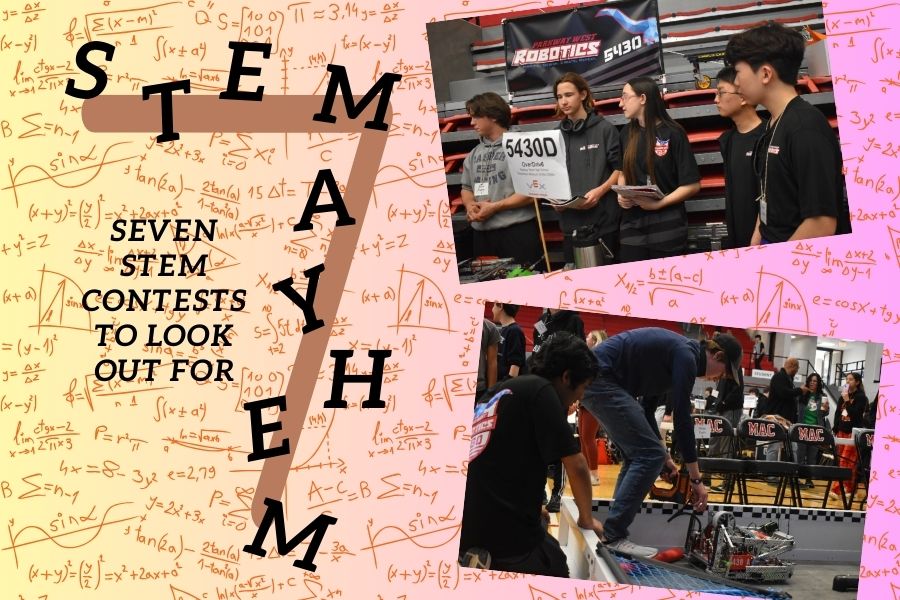
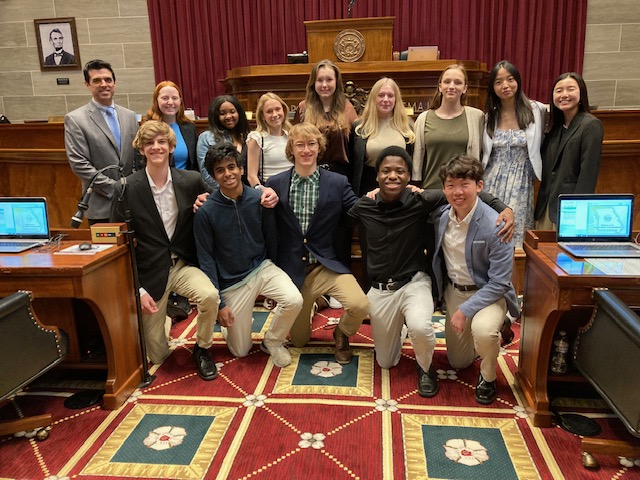
![Members of concert band work to play the soaring melodies of Crowns of Glory by Jack Wilds during their winter concert. Because of the pieces difficulty, the band had to work together extra diligently to make it sound concert-ready. [Band has] helped me [with] teamwork because its not just an individual thing. The whole group has to be put together to make something amazing, Concert Band member and sophomore Ella Bruner said.](https://pwestpathfinder.com/wp-content/uploads/2024/03/unnamed-3-1-1200x800.jpg)
![From Jan. 22 through Feb. 1, Parkway West High is displaying a wide array of art pieces made by students ranging from elementary to high school. All classes were represented on the displays in both the art wing and the main foyer of the school. “[Art] benefits me because in the middle of a busy day. I can just relax and have some fun doing art and it makes me happy. I think its important that you show art in the art show so that people can get inspired by it and be inspired to create their own pieces; it’s really impactful,” sophomore Dhiya Prasanna said.](https://pwestpathfinder.com/wp-content/uploads/2024/02/image1-1200x800.jpg)




![Moviegoers smile for a picture after watching the Bollywood movie “3 Idiots.” The event ran from 4-8 p.m. on Saturday, March 9 and was open to students across the Parkway School District. “I decided to come to the movie night because I wanted to introduce my non-Indian friends to the rich culture and entertainment of Bollywood. One of my favorite parts [of the night] was the combination of [the] amazing food and the pure comedic entertainment. [It] was unmatched,” sophomore Aryan Allu said.](https://pwestpathfinder.com/wp-content/uploads/2024/03/IMG_5479-e1710180016483-1200x900.jpg)
![Senior Kylie Secrest volunteers at the blood drive signup table.The table provided students aged 16 and up with information about the drive and assisted them in the signup process. “We decorated the stand in the lunchroom with heart related or red decorations from either Dollar Tree or Five Below,” Secrest said. “This year was my first year doing [the blood drive] and it was fun. I got to be able to meet new people and help out the community.”](https://pwestpathfinder.com/wp-content/uploads/2024/03/image2-1200x800.jpg)
![Performing a dance, athletes wave their pompoms in the air as special education teacher Wendy Zieleskiewicz stands behind them. Zielesckiewicz, who has been teaching for 25 years, didn’t know what she wanted to pursue until she remembered her love for children. She now sees her students benefiting from Special Olympics. “Its really fun to see [athletes] grow. [Special Olympics is] incredible — Its high energy, its a lot of fun. Its cool to see the kids all working together and having a good time. They make connections with other students, [and] its amazing to see how much fun they have. I hope that they can make and maintain relationships with people that are not in this classroom. I always encourage [my students] to participate [in Special Olympics] because it is a lot of fun and even if they dont make a best friend, you still have an opportunity to grow,” Zieleskiewicz said.](https://pwestpathfinder.com/wp-content/uploads/2024/02/unnamed-5-1200x798.jpg)

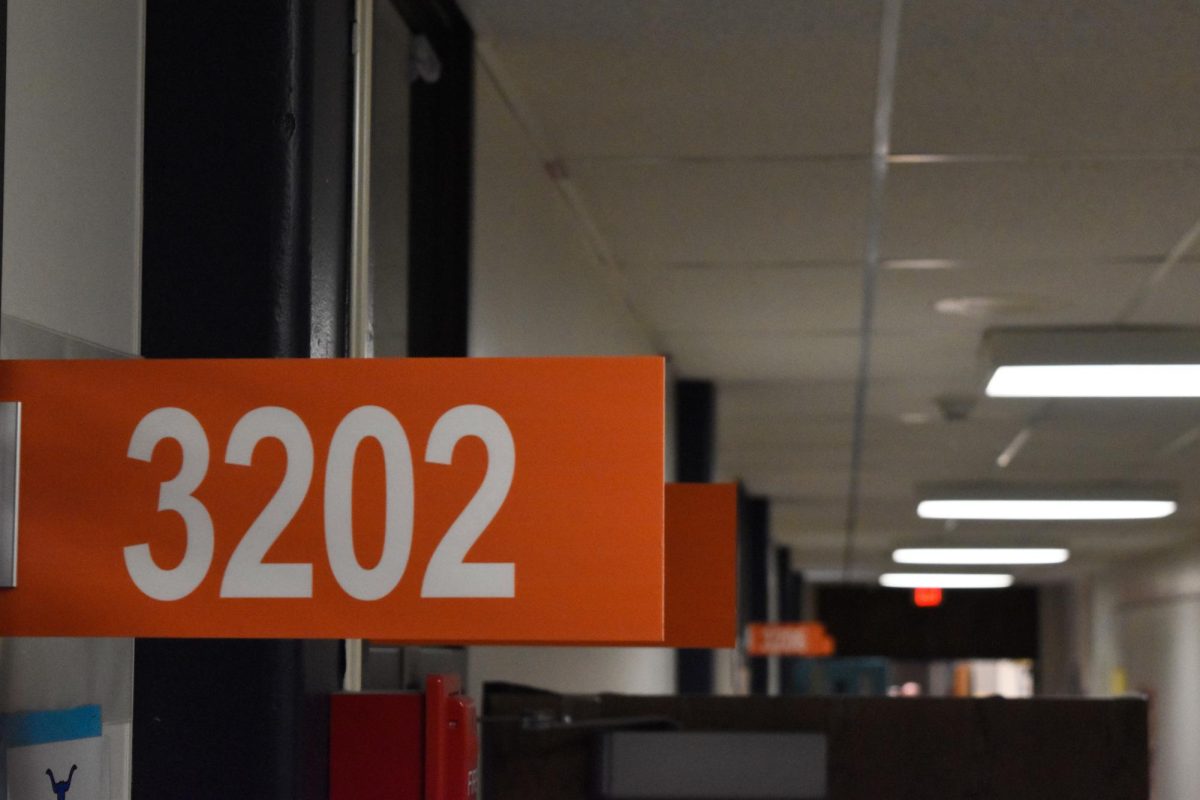
![Smiling widely, Principal John McCabe congratulates English teacher and English Department head Shannan Cremeens on winning the 2023-2024 Teacher of the Year title. Sophomore Cooper Oswald was a witness to the celebration. “We were all pretty excited. We were all clapping and standing up. We even [got to] take a picture with her,” Oswald said.](https://pwestpathfinder.com/wp-content/uploads/2023/12/TOYvertical-1200x954.png)
![With the click of a button, senior Abbi VanValkenburgh snaps a shot of her twin sister, senior Alli VanValkenburgh. Abbi found her passion for photography during her freshman year, allowing her to expand her class knowledge into her current photography business. “Photography has taught me how to be patient with myself. I learned that sometimes Ill fail, and thats okay. I know that not every image will be perfect, but the ones that [are] keep me going,” Abbi said.](https://pwestpathfinder.com/wp-content/uploads/2024/04/DSC_5197-copy-2-1200x940.jpg)
![English teacher Leslie Lindsey smiles for a photo behind her desk. Growing up, Lindsey participated in many things outdoors, learning life skills that she still uses today. “I loved fishing and was never grossed out by it. I could get my hands dirty and spend time outside; even when it was cold, I didnt care. Fishing takes a lot of patience, and that is [now] a virtue of mine because I have great patience that translates into my classroom,” Lindsey said.](https://pwestpathfinder.com/wp-content/uploads/2024/04/IMG_6632-1-e1712758336310-1200x983.jpeg)
![Each year, as temperatures start to rise, students await the coveted spring break, a week-long vacation taking place from March 16-24. Students and staff appreciated the respite from school and the sunny weather that came along with it. “I enjoyed traveling as a way to spend spring break [and] have a last trip with my family before college. I wish spring break was a little longer so I could have spent more time and not have a quick turnaround coming back to school,” senior Norah Rutkowski said.](https://pwestpathfinder.com/wp-content/uploads/2024/04/Spring-break-Shenanigans-1-1200x800.png)
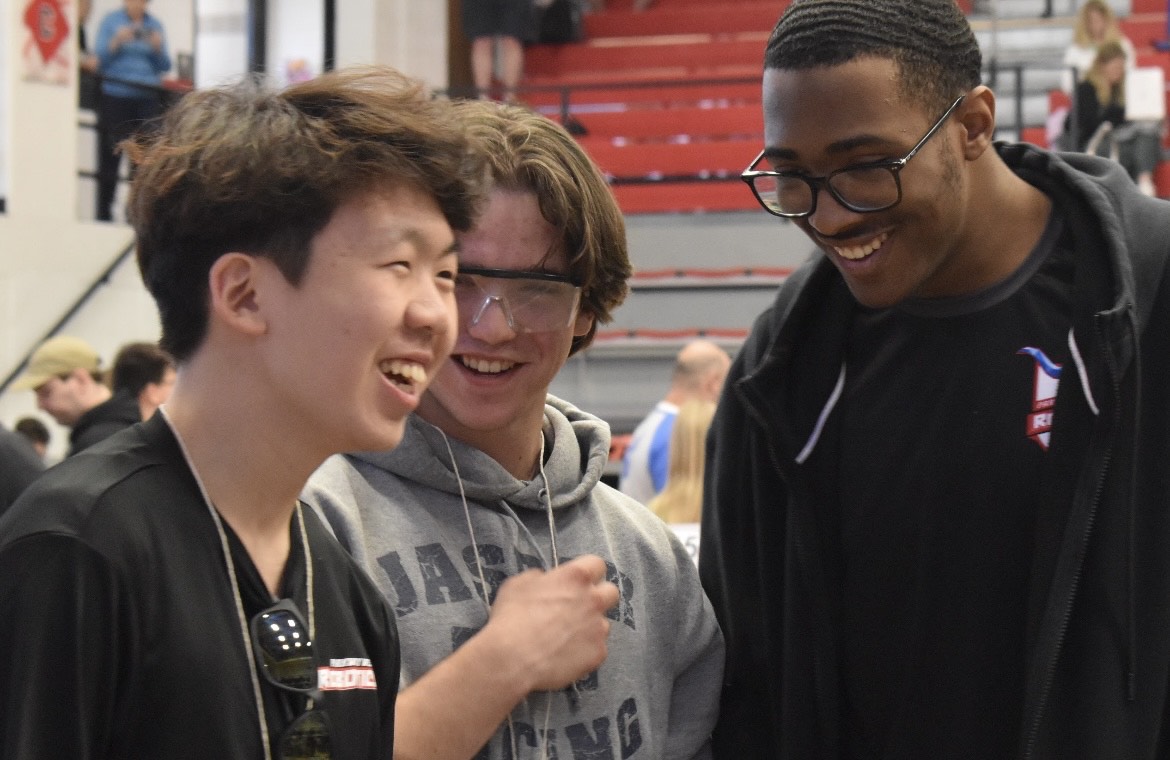


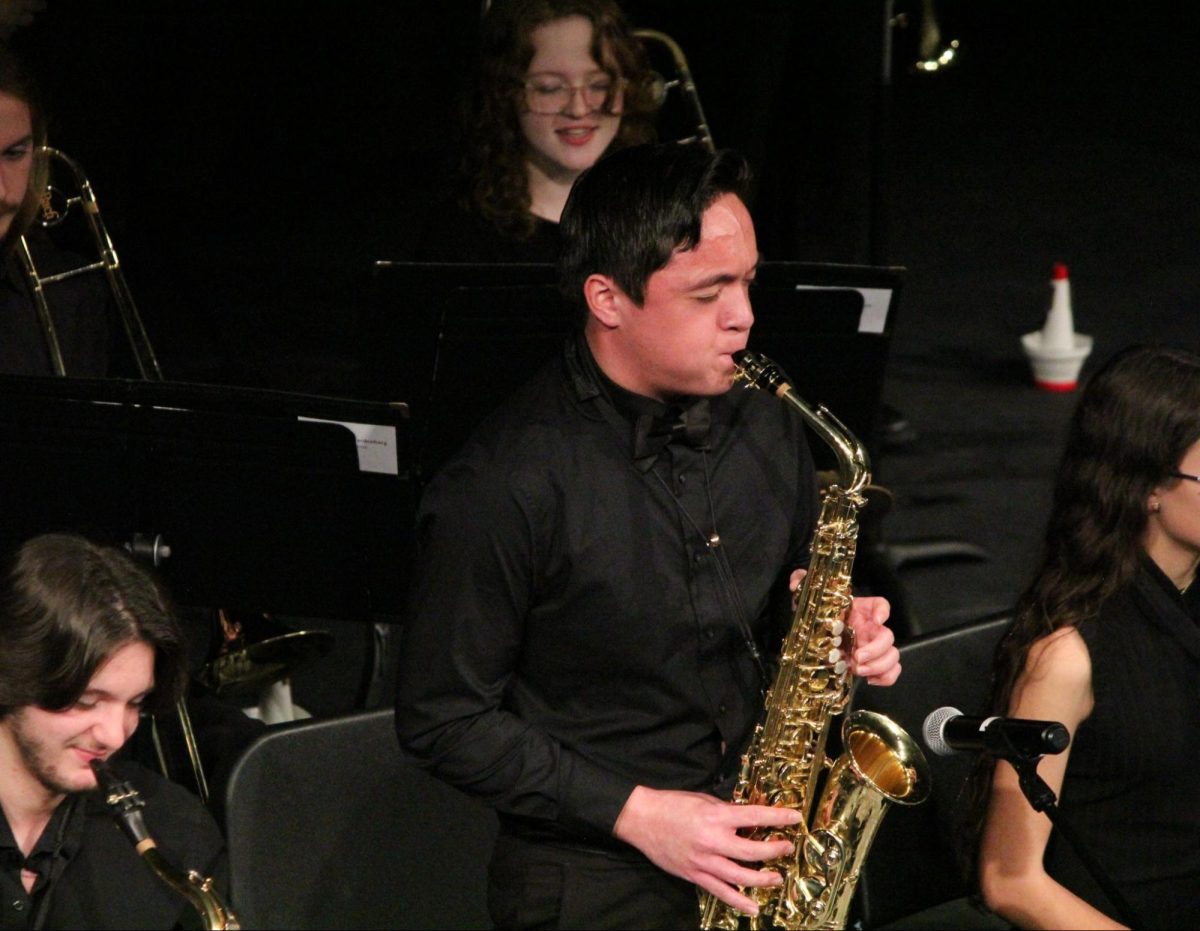
![Senior Dana Zafarani poses in paint reading “Women, Life, Freedom” and “#BarayeAzadi” as a protest against the Iranian government. The experiences of Iranian women inspired Zafarani to assist in any effort to protect women’s rights. “The world should live in peace. Every woman deserves to be equal. Every woman deserves love [and] kindness,” Zafarani said.](https://pwestpathfinder.com/wp-content/uploads/2023/11/Screenshot-2023-10-31-12.54.47-PM.png)
![Business and personal finance teacher Evan Stern stands in front of his classroom. After facing hardships growing up, Stern learned how to deal with them with the help of role models like his dad. “We dealt with some trauma when I was in middle school, and my dad had to be responsible for all three of us while he was working full-time. I know he had to sacrifice a lot. Im sure it was really hard for him, but looking back on it, he did a really good job . I didnt appreciate everything that he did at the time because I was so young. Now, Im engaged and probably going to have kids of my own in the next couple of years so I [am starting] to look at things differently,” Stern said.](https://pwestpathfinder.com/wp-content/uploads/2024/02/Untitled-7-1200x900.jpg)
![Holding his two smiling daughters in his arms, Principal John McCabe celebrates earning his doctorate degree. He attended Maryville University for two years and reached his goal of achieving a Doctor of Education: Educational Leadership degree after months upon months of hard work and long nights. “Im not going to lie, Im glad I have another night of my life back when Im not at school till very late,” McCabe said. “I can spend more time with my family and with my friends [who] are here at [West]. Im really happy about that.”](https://pwestpathfinder.com/wp-content/uploads/2024/01/mccabefeature.png)
![Art teacher Katy Mangrich sits in her classroom, smiling for a picture. During her time in high school, Mangrich learned several lessons that she now passes on to her son. “The biggest life lesson that I learned is honesty. I wouldnt say I was the best teenager, but I learned very quickly in high school to always be forthcoming and honest with my parents because it always ended up serving me better in the long run. [My parents] might have been upset with me [and the mistake I made], but I wasnt going down the rabbit hole of a lie because that was just going to get me into more trouble,” Mangrich said. “I passed [that lesson] along to my nephew. Honesty is always your best approach; just don’t lie. I say that to my son all the time. Theres no advantage to lying, [and] thats a huge takeaway [from] how my parents raised me.”](https://pwestpathfinder.com/wp-content/uploads/2024/01/Screenshot-2024-01-26-10.10.12-AM.png)
![Social studies teacher Aaron Bashirian smiles in front of his classroom. Bashirian didn’t know he wanted to be a teacher from early on, but he found the choice to be a good one. “I started [teaching] because there was an opportunity for me to experiment with it. Fortunately, [teaching] was a good choice. In 2012, I became a teacher at Parkway at the Alternative Discipline Center, which is where they send suspended kids to keep being educated if they choose. I spent six years there and then I got drafted to West, [where] Ive been for about six years,” Bashirian said.](https://pwestpathfinder.com/wp-content/uploads/2024/01/Untitled-35-1200x800.jpg)
![English teacher Angela Frye stands behind her desk in her classroom. Frye went through a lot of personal struggles to get to where she is today, and with each step in her life, she carries her gratitude for those obstacles. “Everything happens for a reason. I believe in [the concept of] good energy, good karma, [from] being a good person. Those are things I dont take lightly. [Struggles] build character. You really appreciate everything you have when you have to work for everything you have,” Frye said.](https://pwestpathfinder.com/wp-content/uploads/2023/11/Untitled-8-1200x800.jpg)

![Senior Thalea Afentoullis backs her car into the senior parking lot. Though Afentoullis has two years of driving experience under her belt, she often feels concerned about her safety in the school zone. “From my experience, whenever I try to get down to the pit, [the junior parking lot], after school, I have to be very conscious. [Students] whip [their cars] out of their spots. The school could do a much better job by separating the timings at which students can leave because most [car crashes] happen after school when everyone’s rushing to get out of the line,” Afentoullis said.](https://pwestpathfinder.com/wp-content/uploads/2024/04/68467-e1712933168328-1200x789.jpg)
![The celebration of Women’s History Month, originating in 1987, marks an annual acknowledgement of women’s contributions to various fields of work. However, many female revolutionaries remain underrepresented in our history books, oftentimes overshadowed by male counterparts who could reach a greater audience because of their status. “Back then, women didnt have the voice that we do now, [but] their actions gave us the voice we have today to be able to speak up. Now, we share information to show how far we came from,” Black Student Union member and sophomore Jariyah McCalister said.](https://pwestpathfinder.com/wp-content/uploads/2024/04/feature-photo-unsung-4.png)

![Celebrities are inescapable in our day-to-day lives, constantly reminding us of whatever is newest in their lives. And for us on the receiving end, we find ourselves devoting time and effort to vie for just the tiniest sliver of their attention. “[Taylor Swift] is my favorite celebrity, and to me she means someone who is kind, smart and caring,” junior Swati Kumar said. “I feel connected to her and her music; I listen to her everyday and I find [her] very relatable.”](https://pwestpathfinder.com/wp-content/uploads/2024/01/Parasocial-1.jpg)

![In the 1950s, the first recorded spikes in global temperatures were recorded, and ever since, Earth has been in the midst of a disastrous climate crisis, as rising temperatures wreak havoc on susceptible regions and destroy animal habitats worldwide. Junior Nidhi Pejathaya helped found West’s Sustainability Council to create a space where students can educate themselves about climate change and do their part to preserve the environment. “When youre going out of your way to recycle [or] reuse your clothes to save water, youre saving people. Youre saving adults, youre saving families, youre saving children. Youre saving a whole generation. Just because we dont see it doesnt mean its not happening,” Pejathaya said.](https://pwestpathfinder.com/wp-content/uploads/2024/04/new-editorial-feature-1200x800.jpg)



![For the past three years, Parkway has administered high school finals after winter break, a practice that proves to be detrimental to the success as well as the mental health of students. With finals after break appearing to do more harm than good, the question of what changes can be made arises time and time again. “The pressure for finals is difficult, and to have that [pressure for] a few weeks because youre on [a] break can make you generally sad. Its a bummer in general. I wish [finals] were before break, so we [could] have a break to sleep, celebrate and not study. Everyone Ive talked to about it is like yeah, finals sucks, and I wish that wasnt a thing,” junior Meadow Kostial said.](https://pwestpathfinder.com/wp-content/uploads/2024/01/decembereditorial-1200x963.jpg)












![2023 was defined by female vocalists such as Miley Cyrus, Taylor Swift and Paramore’s Hayley Williams as their diversity and talent amongst their respective genres topped the musical charts. Williams took to Instagram to show her gratitude for having owned the No. 1 spot on Billboard’s Top 100 chart. “We know enough by now to know success doesn’t equal value. That being said, to experience the [No. 1] on this album, as this version of Paramore, is such a sweet and surreal moment to celebrate together,” Williams wrote.](https://pwestpathfinder.com/wp-content/uploads/2023/12/2023-A-Musical-Recap-2.0-1.png)




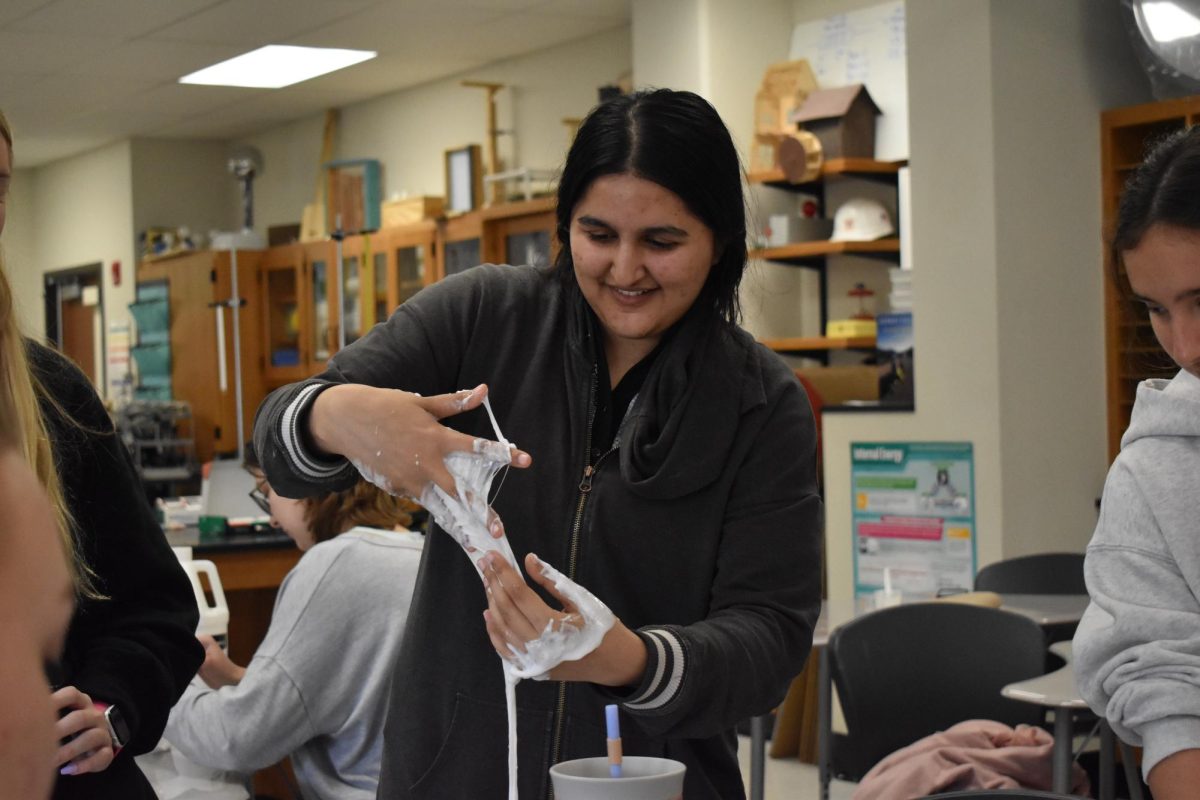





![In perfect shooting form and with eyes on the rim, junior Tyler Kuehl is about to shoot his next basket in the last game of the season against Marquette High School. Kuehl has been playing basketball since he was 5. “Even though I played basketball all my life, the game-winning shots can be pressure, its confidence. If youre going into that shot and not thinking that youre gonna make it, its obviously not going in. And if you believe, [it will]. Thats the only way you can succeed,” Kuehl said.](https://pwestpathfinder.com/wp-content/uploads/2024/01/unnamed-32-1-1200x1200.png)

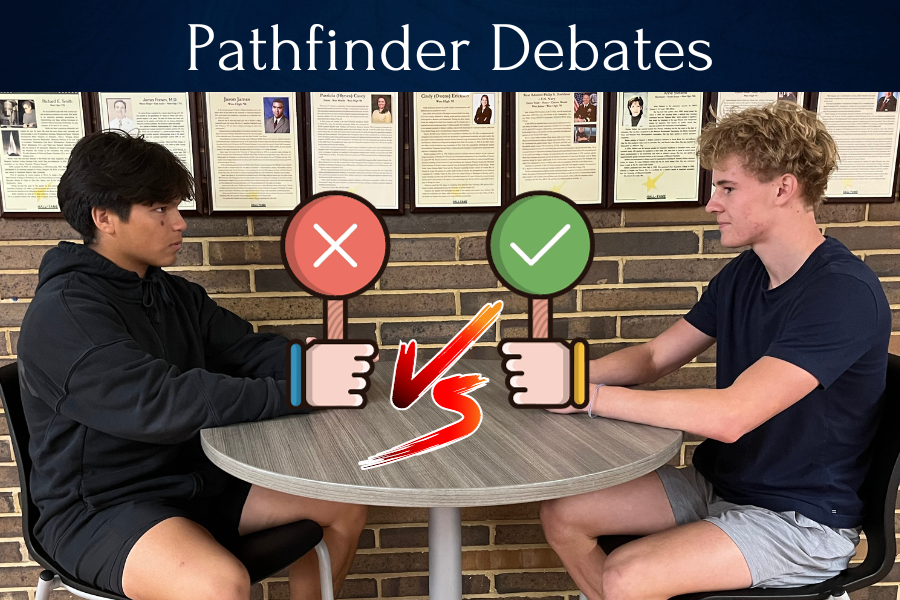

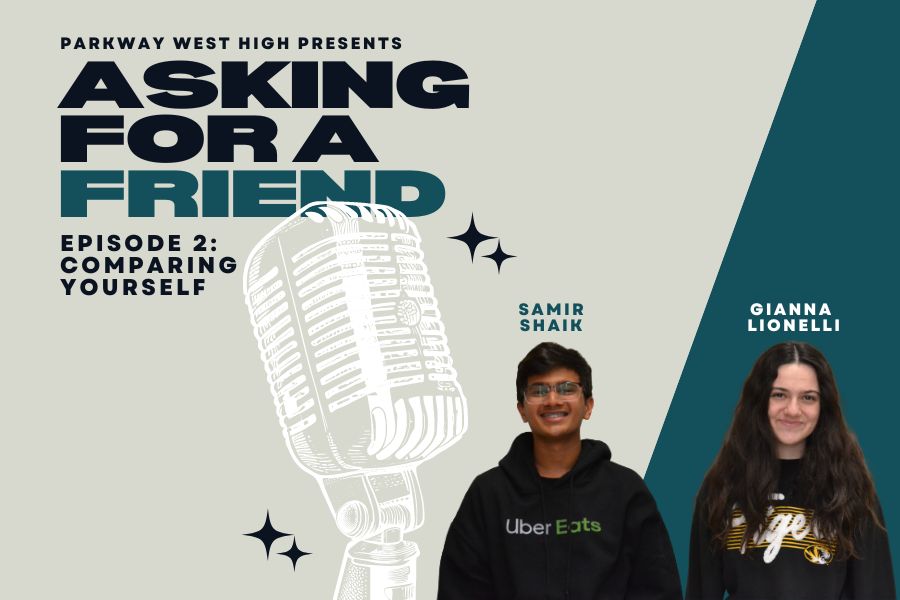

![“Sometimes I feel like Im not good enough and that I can never get better. I’m still overcoming this [feeling]. I keep pushing myself everyday [to be a] better [runner] even when I might not be the best at it. I also see how hard the upperclassmen work and that motivates me to do better. A varsity cross country runner once told me that even when you feel pain, you can run through it. Because of that, I push myself, [and] see myself improve. After a meet, I feel accomplished and [as though] I’ve worked hard. I feel like I can do better at running if I keep practicing. [How I run] depends on how I think. If I think I cant run — I cant run. I [motivate] and tell myself that Im a fast runner and everyones going to [surpass their personal record]. My biggest accomplishment so far was improving by 10 minutes on my 5K run. [It’s when I finally realized that] I am better than I thought I was.” Mahiya Pallipat, 9](https://pwestpathfinder.com/wp-content/uploads/2024/04/DSC8837-copy-2-1200x800.jpg)
![“My [favorite] hobby is running. I have been [a member of the] the cross country and [the] track and field team. [I also enjoy] tinkering [and constructing] random things. Everybody on our team knows about [the complications I had because of my] back. I had [a snag from my regular hobbies after going] through a surgery back in 2022; it took a lot out of me. I couldnt run for four months, and I was really out of shape [when] getting back into cross country. It was really hard for me. I would say a lot of [my inspiration has come from] my dad to be honest. Hes the one who has pushed me to improve every day [in] every single [aspect]. Hes the one who taught me how to be responsible, manage my time well [and] be consistent. [It’s the] same with running; Im consistent and I try to work my hardest in order to get better every day. A lot of [my growth] has been tied to running because I have been so involved, but I feel like I’ve become a lot more social with people. Ive become more dedicated to the things I like. [During practice], Im starting to [run] with faster groups now. [I’m] able to keep pace with [people] who [I] didnt used to before. I [am] definitely most proud of my recovery [after] my surgery. It did take me four months to be able to run again, but after that, I really bounced back. I have improved a ton and Im really proud of that.” - Ragsy Muralidharan, 12](https://pwestpathfinder.com/wp-content/uploads/2024/04/RagsyMuralidharan_12-1200x800.jpg)
![“The first memory that comes to my head is when everyone starts doing the longhorn rumble when we call [out to the audience], they stomp and clap with us along to the beat of the cheer. I [started to appreciate cheer] when I got to high school. [At first], I did it for fun in middle school just to say that I [had a hobby]. When [I got to] high school my coach appreciated me and [listened to] my opinions. It really made me fall in love with the sport again. My favorite thing about cheer is the friendships that I get from it. [I] get to see the people I’m with all the time because [we] have practice [together often]. Especially during football season [is when I get to] hang out with [my teammates] every day. The people I met through cheer and got close with this year make me [want] to continue cheer. [I also got closer with] the people on [the] varsity team and [was able to gain friendships] through that. I am happy [that I get to] cheer with [everyone] next year. It [urges me to] keep going. The cheer community is fun because everyone just understands each other. Were all very similar [and connected] in ways and its like a tight knit family.” Alyssa Gessner, 9](https://pwestpathfinder.com/wp-content/uploads/2024/04/DSC_0063-1200x800.jpg)
![“Im passionate about volleyball. Ive been playing for six years. I play it because I like the way that, [even though,] its a team sport, its also focused on [a person] individually; especially in my position since Im the back row defense where the ball can hit me. Its [up to] me, I can’t blame anybody else. I like how its very focused on [the] performance and how well [I] react to how the other team plays. The way I play really matters to me because it’s a team sport and I dont want to let my teammates down.” Emma Barton, 9](https://pwestpathfinder.com/wp-content/uploads/2024/04/image1-1200x800.jpg)
![“Im very passionate about debating, [which is why] I am [a member of the] speech and debate team. I like how it offers opportunities to speak [from] viewpoints on different opinions with people outside of our group from other schools around our communities. I usually participate in public forum debates [and] the topic [we speak about] changes every month. One debate that I was most invested in [took place in] February; which was [about whether or not] the US federal government should ban all single use plastics. I feel like I spent the most time working on this case [than any other discussion], and I was determined to make it into finals. I hold competition very dear to me. I have only gone to two tournaments so far, but Ive already made it into the finals. [Finals are important because], I think it really shows how much growth and [effort you’ve put in through the battle].” - Bethany Liao, 9](https://pwestpathfinder.com/wp-content/uploads/2024/04/Bethany-L-1200x800.jpg)


![January 2024 marks over seven decades since the publishing of “The Bell Jar.” In those seven decades, the novel has opened the eyes of countless women to the unfair treatment they’ve faced, particularly being percieved as nothing more than mothers and the consequences that arise from that. “To my knowledge, [“The Bell Jar” was] one of the earliest novels that explores a womans mental health and inner journey and allows her to go through struggles and make mistakes without vilifying [her]. Shes ambitious yet flawed and unsure how to proceed, like [many] women at the beginning of the 1960s. My mom was born in 1950 and grew up hearing that if she wanted to work, she had three choices: nurse, secretary and teacher. It was a brave new world when she found out there were more options. But that also comes with fear and anxiety and the judgment of others. Sylvia represents that journey,” French teacher Blair Hopkins said.](https://pwestpathfinder.com/wp-content/uploads/2024/01/Mother-26.png)
![Marching in front of Forest Park Avenue, protesters gather in support of the pro-choice organization Planned Parenthood after the controversial overturning of the Supreme Court case Roe V. Wade. Parkway West alumna Luisa Larinizi, former co-president of the Feminist Club, attended the protest in 2022 to share her voice on the matter. “I went because it’s an issue I care about deeply and I felt this was a way I could help and actively be involved. It is very important to stand up for what we believe in, and peaceful protesting is always a great way to achieve that,” Lazarini said. “It was incredible to see how many people came. Many gave speeches on their personal experiences with reproductive rights, [giving] me new insight on how many people are actually affected by the issue.”](https://pwestpathfinder.com/wp-content/uploads/2024/01/Untitled-design-1.png)

